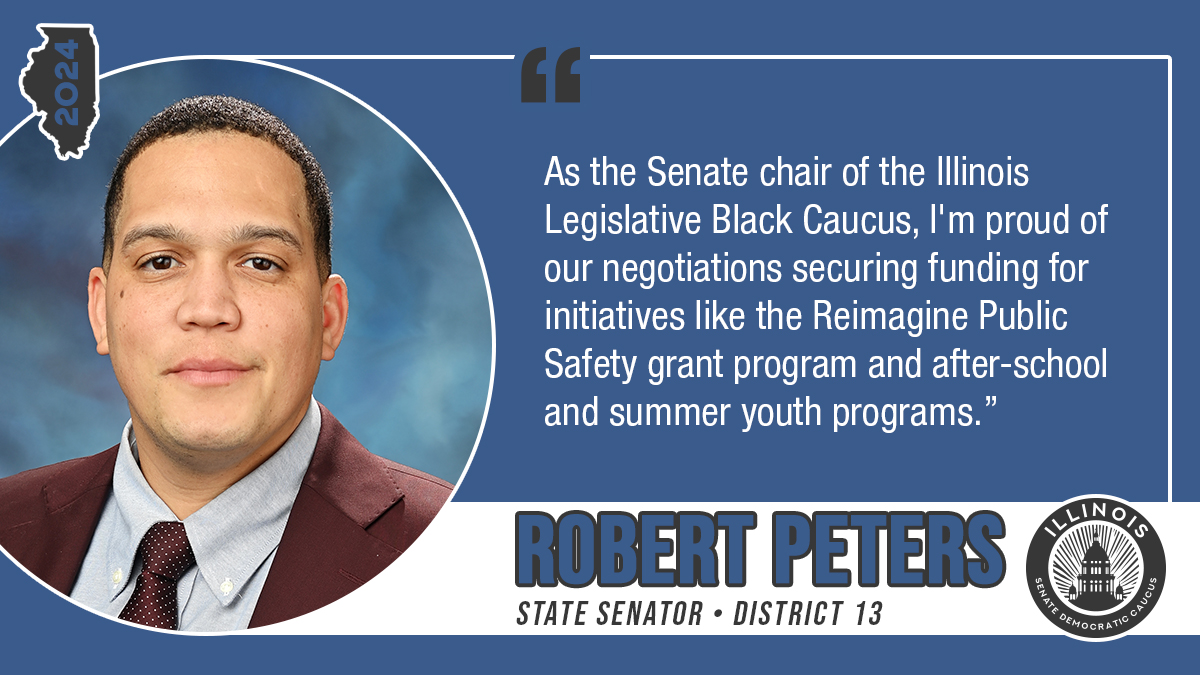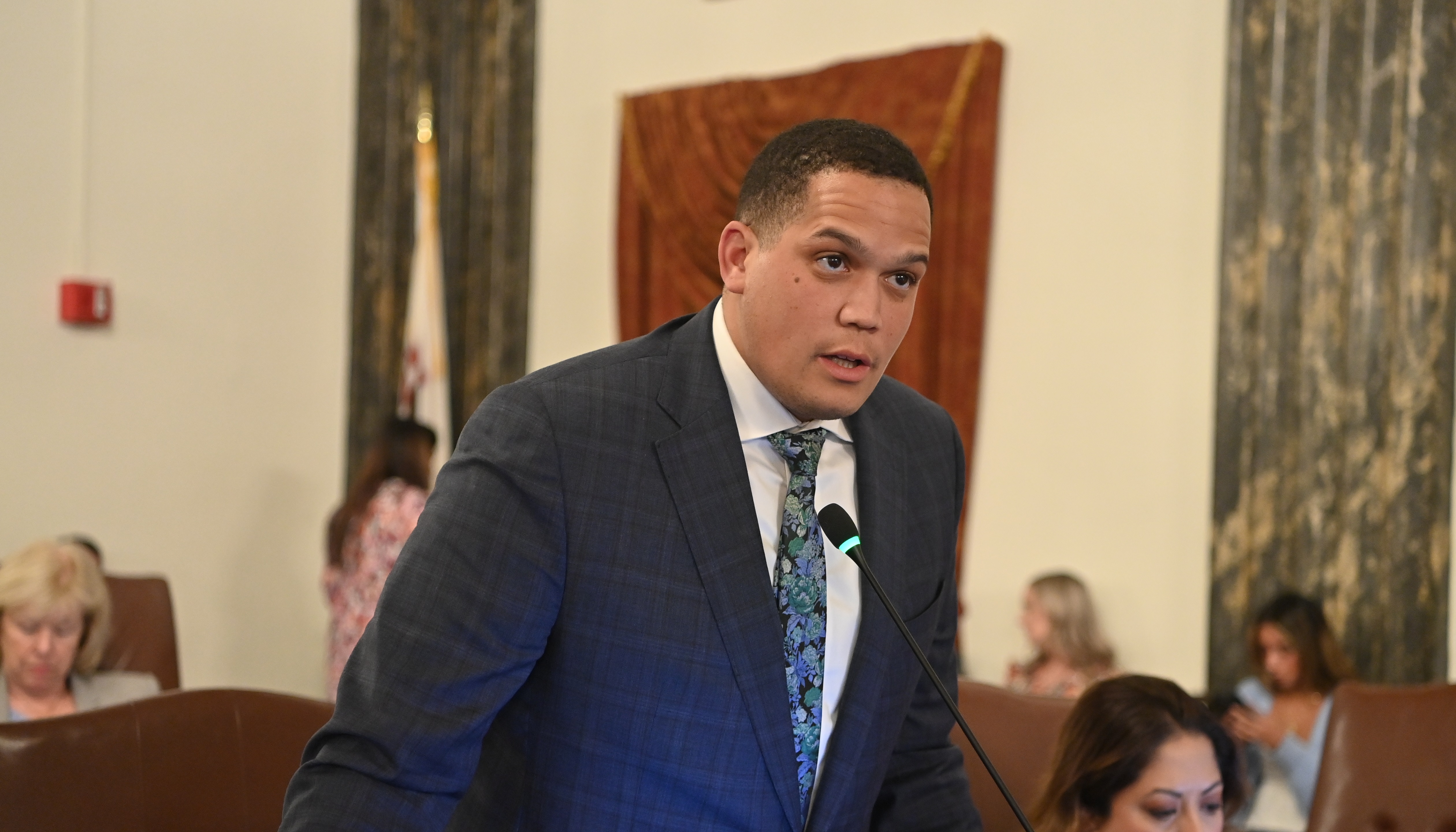Peters: Budget prioritizes violence prevention programs and promotes equity
- Details
- Category: Press Releases
 SPRINGFIELD ¬– State Senator Robert Peters (D-Chicago) released the following statement after the Senate passed the Fiscal Year 2025 budget:
SPRINGFIELD ¬– State Senator Robert Peters (D-Chicago) released the following statement after the Senate passed the Fiscal Year 2025 budget:
“Earlier this year, Black Caucus members stressed the need for investments combating historical disinvestment and systemic racism. As the Senate chair of the Illinois Legislative Black Caucus, I'm proud of our negotiations securing funding for initiatives like the Reimagine Public Safety grant program and after-school and summer youth programs.
“However, I, like many of my Black and brown colleagues, would have liked to see more funding put back into our communities to support these data-proven programs.
“I was pleased to see my focus on fairer systems for survivors of domestic and gender-based violence led to vital funding for support services. I look forward to seeing how these investments will create opportunities for equity and further expand support for our communities most in need.
“In regards to economic equity, we secured funds for tourism spending so that we can continue attracting driving revenue and boosting local economies.”
Peters' legislation to streamline record-clearing for youth heads to governor
- Details
- Category: Press Releases
 SPRINGFIELD – State Senator Robert Peters released the following statement in response to passage of his Senate Bill 3463 in the House, which will make record expungement a smoother process for youth involved with the juvenile court systems:
SPRINGFIELD – State Senator Robert Peters released the following statement in response to passage of his Senate Bill 3463 in the House, which will make record expungement a smoother process for youth involved with the juvenile court systems:
“We are changing how court systems see young people, helping them get back on track and be a part of the community again.
“Youth involved in the criminal justice system lack consistent legal representation, struggle to navigate legal procedures, and often miss notifications regarding potential expungement opportunities. This initiative prioritizes their rehabilitation and successful reintegration into society.
“Streamlining the expungement process by coordinating it with initial court decisions eliminates unnecessary appearances, enabling more young people to erase their past mistakes and concentrate on building a brighter future.
"I am immensely proud to witness both chambers advance this legislation with bipartisan support, and I look forward to the governor's support by signing Senate Bill 3463 into law.”
Healthcare Protection Act heads to the governor’s desk thanks to Peters
- Details
- Category: Press Releases

“Life, with all its twists and surprises, is already unpredictable. Our health care system shouldn't add to the uncertainty," said Peters (D-Chicago). “It’s time for insurance companies to prioritize care over profits, and for us to support those who work in and depend on the health care system with legislation that makes a difference.”
House Bill 5395 addresses "ghost networks," which occur when networks list providers who are not taking new patients, do not accept the patient’s insurance or are retired. Further, it extends the ban on unjustifiable insurance rate increases to large group plans in Illinois ensuring access to affordable care.
Peters at the forefront of efforts to strengthen health care access and consumer protections
- Details
- Category: Press Releases

"This legislation makes health care more accessible and transparent," said Peters (D-Chicago). "It also ensures accountability for large insurance companies that have gone unchecked by making certain they receive proper oversight.”
More Articles …
Page 21 of 96





